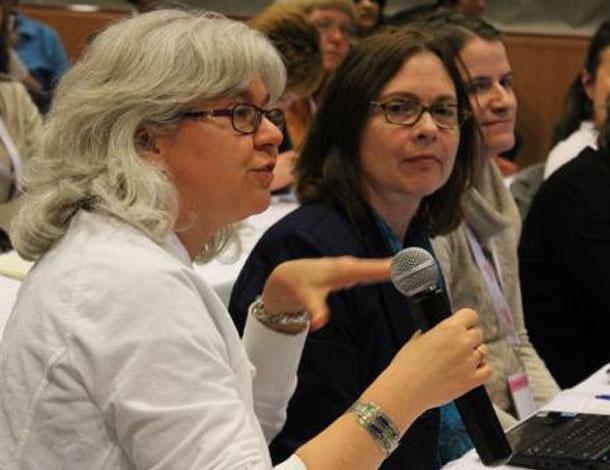Cultivating self/collective care and wellbeing is both deeply personal and deeply political. When we nurture wellbeing at the personal level, we improve our ability to care and have compassion for others. We are interested not in hiding from our busy lives and stress, but in finding and sharing ways to fully embody our politics and principles, making our contributions sustainable.
“Caring for myself is not self-indulgence, it is self-preservation, and that is an act of political warfare.' – Audre Lorde
We are made up of not only heads full of intellect and discernment, but of hearts that fuel our passion for social justice, and bodies, without which we would not be able to engage in the world around us. A symbol of patriarchal societies the world over, however, is the separation of mind, heart and body; feeling disembodied, disconnected rather than whole. These forms of separation create stress for individuals, organizations and societies.

The contexts of our feminist and activist work are inherently unpredictable: environments of conflict and insecurity, political repression and inequality. Our dedication may be misunderstood by our closest friends and family. Many of us have experienced violence and abuse, possibly other events or relationships have left us traumatized. We have experienced oppression based on our ethnicity, race, gender, sexual orientation, gender identity, age or different abilities.
Risks to our feminist futures
The risks of such stress, violence and trauma to individuals’ health, psychological wellbeing and spirit have implications for us personally, and for the very functioning and effectiveness of the organizations and movements we lead and organize within. This vulnerability strongly depends on our access to economic resources, healthcare systems, and can be worsened through pathologization and social prejudice, even in feminist frameworks.
As African feminist Hope Chigudu says, “Organizations are like living beings – they are created by and sustained by people who bring them to life ….” We may become limited in our organizational and movement-wide thinking when our experiences of oppression and marginalization dominate our thinking, spirit and actions.
Hope Chigudu further asserts that the process of positive social change can even be rendered incomplete when we do not model our feminist purpose and politics by supporting personal and collective self/collective care and wellbeing. The very outcomes of our work for rights and justice may be affected when we are too fragmented from ourselves, from each other and from the communities we are serving.
Preparing for Transformation
Our ultimate aim is to advance the practice and culture of self-and collective care and mindful wellbeing as a radical strategy for more impactful, sustainable movements and healthier, joyful lives.
Creating more effective and sustainable movements with the full integration of self and collective care and wellbeing is a project that requires our open minds, hearts and wills. If we are to approach our social change efforts in soulful, even joyful ways, we have a lot of collective healing and transformation to do. We have much to build on, but we also are entering unknown territory to some extent. Such a complex problem requires flexibility and emotional intelligence.
2224x1253.jpg)